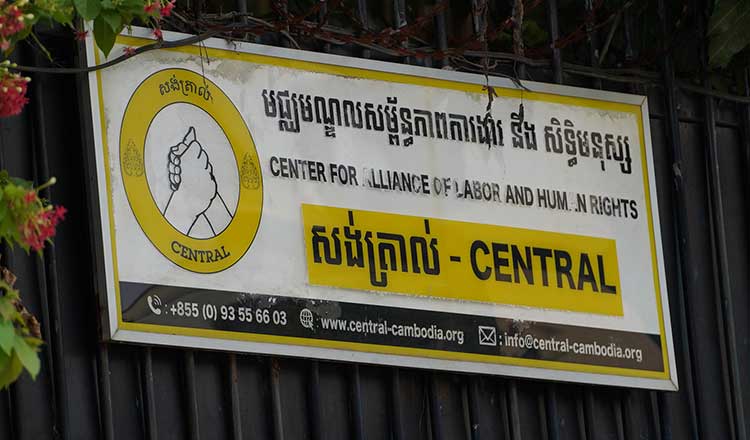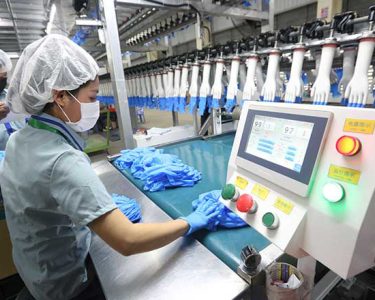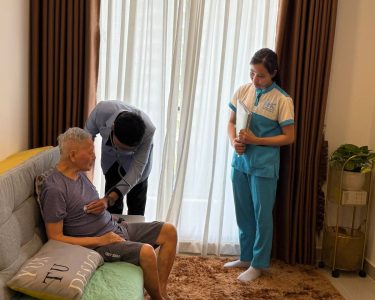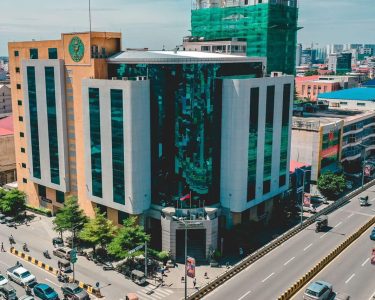For too many garment, footwear, and travel goods workers, the Ministry of Labor and Vocational Training (MoLVT) continues to treat union registration as an obstacle course. Applications are routinely returned for minor spelling, punctuation, or formatting mistakes, forcing repeated resubmissions while leaders are dismissed or convinced to leave the union in the meantime. Without formal recognition, unregistered unions are not able to collect union dues from members or represent them in disputes, leaving workers legally unprotected and employers unaccountable.
In theory, Cambodia’s Trade Union Law and Labor Law provide a clear path for workers to register. In practice, the process has become a test of endurance. This is how it works: A new union holds elections, files its papers, and gets an MoLVT receipt. Then the employer retaliates. Fixed-duration contracts quietly “expire.” Workers on permanent contracts are accused of serious “misconduct,” “poor performance” or laid off for “lack of orders.” Workers are given incentives to leave the union, or threatened. The Ministry then refuses to register the union because the list of founding members is no longer up-to-date, or for a host of other inconsequential errors. The result is circular: the longer workers wait, the easier it becomes to dismantle their efforts entirely. When approached to intervene, brands default to the position that their hands are tied, pointing to the union’s lack of legal status and MoLVT conciliation notes that side with the employer. A perfect Catch-22, to suppress independent unions.
Flagged In Virtually Every International Review
This is not a secret to the world. Since the Trade Union Law (TUL) came into force in 2016, the issue of registration has been flagged in virtually every international review of Cambodia’s labor rights record. The last two cycles of the UN Universal Periodic Review – in 2019 and 2023 – urged Cambodia to reform and expedite the registration process. In 2024, the UN Special Rapporteur on Human Rights in Cambodia urged the Government to guarantee freedom of association and collective bargaining in line with international standards and to ensure that trade unions and workers can register and operate freely The ILO’s Committee on the Application of Standards (2021, 2024) and both ILO Direct Contacts Missions in 2017 and 2022 called for eliminating discretionary delays and making registration objective, automatic, and transparent. In 2025, the ILO’s Committee of Experts (CEACR) pressed Cambodia “to take further appropriate measures to facilitate the registration of trade unions through simple, objective and transparent process.”
More concretely, the European Union’s partial suspension of Cambodia’s Everything But Arms (EBA) benefits in 2020 directly linked trade preferences to credible improvements in freedom of association. Finally, in November 2024, the European Parliament adopted a resolution on the shrinking space for civil society in Cambodia, condemning the government’s harassment of independent unions and labor rights defenders, and urging reforms to the Trade Union Law and other legislation to bring their implementation into full alignment with international labor standards.
Despite these repeated calls for action, the backlog of unregistered independent unions persists. As of August 2025, at least 34 local unions[1] and 3 federations remain in registration limbo, some awaiting approval for over four years despite multiple submissions. At one factory located in the Poipet SEZ, for example, an independent union has submitted its application eleven times over two years, facing repeated rejections for trivial clerical errors. During this time, management dismissed four union leaders and activists, filed a counter complaint suing the union vice-president, initiated a lawsuit against a labor advocate providing support to the workers, and pressured union members to leave the union, while two new employer-linked unions were registered in less than three weeks. Similar cases appear across the GFT sector and other industries, showing that these delays are neither accidental nor isolated.
The public compliance record does not fully reflect this reality. To their credit, Better Factories Cambodia (BFC)continues to play an important role in promoting transparency and accountability in the garment sector, and its inclusion of freedom of association indicators in factory assessments contributes valuable data for policy dialogue. Yet, BFC itself “recognizes the inherent limitations of documenting a full picture of conditions related to freedom of association based on a two-day assessment at workplaces” in its 2024 Annual Report, acknowledging that the “rates of [FoA] non-compliance cited in this report very likely do not reflect the full reality of conditions in the sector.” Such caveats underscore the weakness of compliance monitoring snapshots in capturing the complex pressures and administrative barriers constraining workers’ ability to exercise their rights on a day-to-day basis. Even so, the publication reported that 12% of the factories assessed had at least one freedom of association or collective bargaining violation (44 out of 381 factories), and documented 17 cases where workers were prevented from forming or joining a union freely.
“The 6,000 Unions Fallacy”
Government officials often cite the existence of “over 6,000 trade unions and associations” in the country as evidence that Cambodia’s workers enjoy full freedom of association. “Trade unions and other associations always have freedom to exist; that’s why we saw an increase in over 6,000 professional unions, trade unions, and associations recently, and it wasn’t limiting their freedom,” a Labor Ministry spokesperson told the Khmer Times in 2024. Yet this claim conceals the fact that registration is swift for compliant unions but obstructed for independent ones. The majority of registered entities are either employer-aligned or inactive groups, established precisely because registration is easier when management and government authorities support it. Independent, democratic unions, by contrast, face months or years of bureaucratic resistance. Genuine freedom of association cannot simply be measured by the quantity of registered organizations, but by the independence and security of those who dare to form them – and these numbers say nothing about how many applications were denied and indefinitely stalled, nor how many unions are functionally inert due to interference.
Independent field research paints a clearer picture of the state of union freedoms in Cambodia. Findings from international organizations including Human Rights Watch (HRW), Business and Human Rights Resource Centre (BHRRC), and the International Trade Union Confederation (ITUC) consistently point to a system that stifles independent unions and weakens workers’ ability to organize or bargain freely. Such gaps between official indicators and ground reality reported by independent research erode trust, not only among workers but among buyers whose due diligence obligations are tightening under EU and national laws.
Cambodia’s legal framework does not need to be rewritten to fix this. What it needs is meaningful administrative reform and political will. MoLVT can immediately: 1) Approve registrations upon complete filing and allow unions to operate pending any procedural review; 2) End repetitive rejections for minor clerical errors and issue all corrective guidance in a single notice; 3) Publish a transparent, regularly updated registry of applications, approvals, and denials; 4) Ensure neutrality by applying uniform criteria and timelines to all unions, regardless of affiliation; 5) Digitize the process so unions can apply and track registration electronically across provinces.
These are not radical demands or political concessions; they mirror what Cambodia has already been told by the UPR, the ILO’s supervisory bodies, and trade partners. Implementing them would bring Cambodia’s practice in line with its own Constitution, which guarantees workers the right to form and join trade unions of their choosing, and its commitments under ILO Conventions 87 and 98, bolstering its reputation as a responsible sourcing country.
The government now has an opportunity to turn years of international recommendations into real progress. Making union registration swift, objective, and transparent would demonstrate genuine respect for the rule of law – and for the workers whose labor drives Cambodia’s growth.
Real progress also entails shared commitment across the supply chain – not only from the state, but from the global buyers that profit from Cambodian manufacturing. Global brands are bound by emerging due-diligence frameworks such as the EU Corporate Sustainability Directive and the OECD Guidelines for Multinational Enterprises to ensure that the factories in their supply chains respect workers’ right to organize. Publicly standing for independent union registration and championing fair application of the law would send a clear message that freedom of association in sourcing destinations such as Cambodia is non-negotiable.
This Op-Ed was written by Center for Alliance of Labor and Human Rights (CENTRAL).





